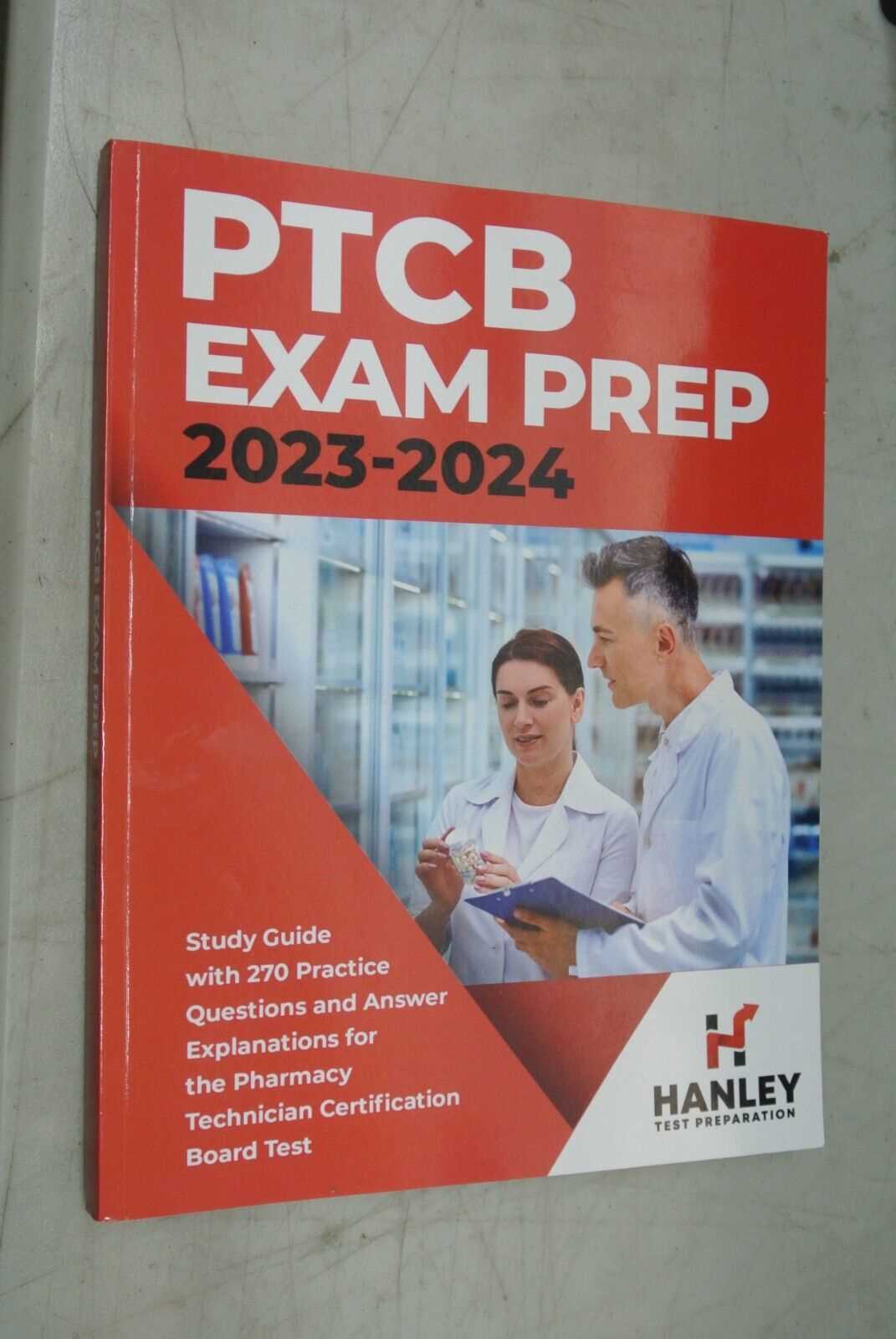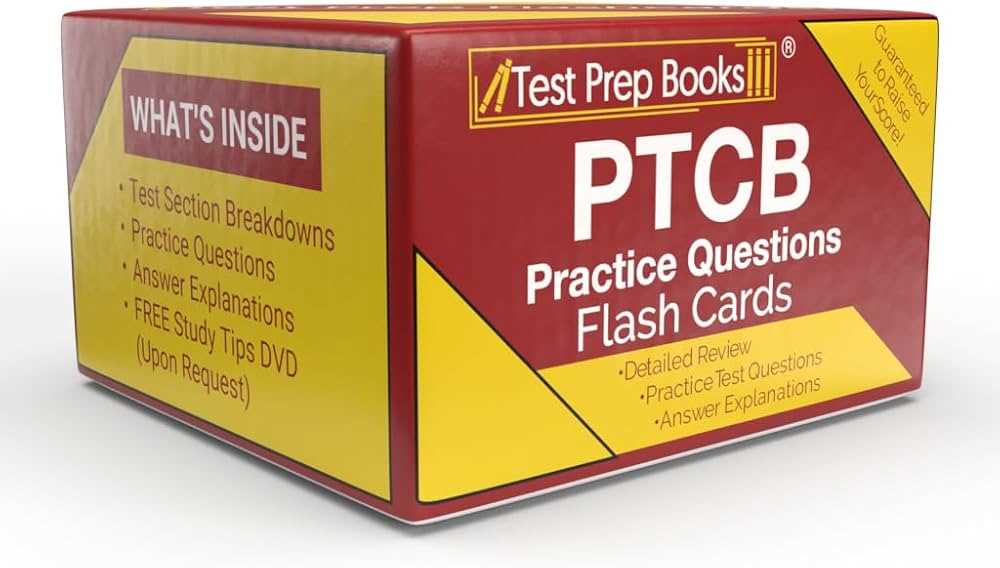
Achieving success in a technician qualification exam requires a combination of knowledge, strategy, and preparation. By focusing on key subject areas and honing specific skills, candidates can build the confidence needed to excel.
This guide is designed to help you understand the core material, improve your problem-solving techniques, and navigate complex scenarios. By reviewing realistic scenarios and learning from detailed explanations, you’ll be better prepared for the challenges ahead.
Comprehensive preparation involves understanding the exam’s structure, reviewing relevant topics, and practicing frequently. This approach allows you to identify strengths and address weaknesses, ultimately enhancing your performance.
Whether you’re aiming to strengthen your mathematical skills or review pharmacological concepts, this resource offers valuable insights and tools to help you succeed.
How to Pass the PTCB Exam
Preparing for a certification exam requires a structured approach that combines thorough review, consistent effort, and effective time management. Understanding the core subjects and focusing on critical areas can significantly improve your chances of success.
Organizing Your Study Plan
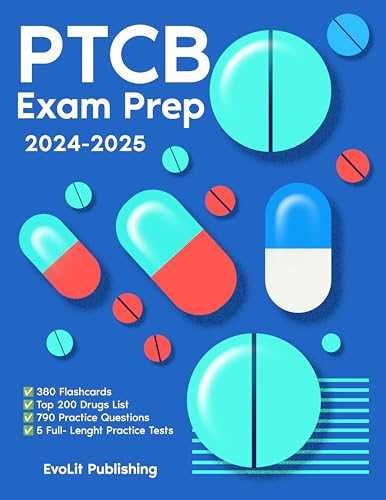
Start by creating a detailed schedule that allocates time to each major topic. Break down the material into manageable sections and set clear goals for each study session. This approach ensures steady progress while preventing last-minute cramming.
Focusing on Key Areas
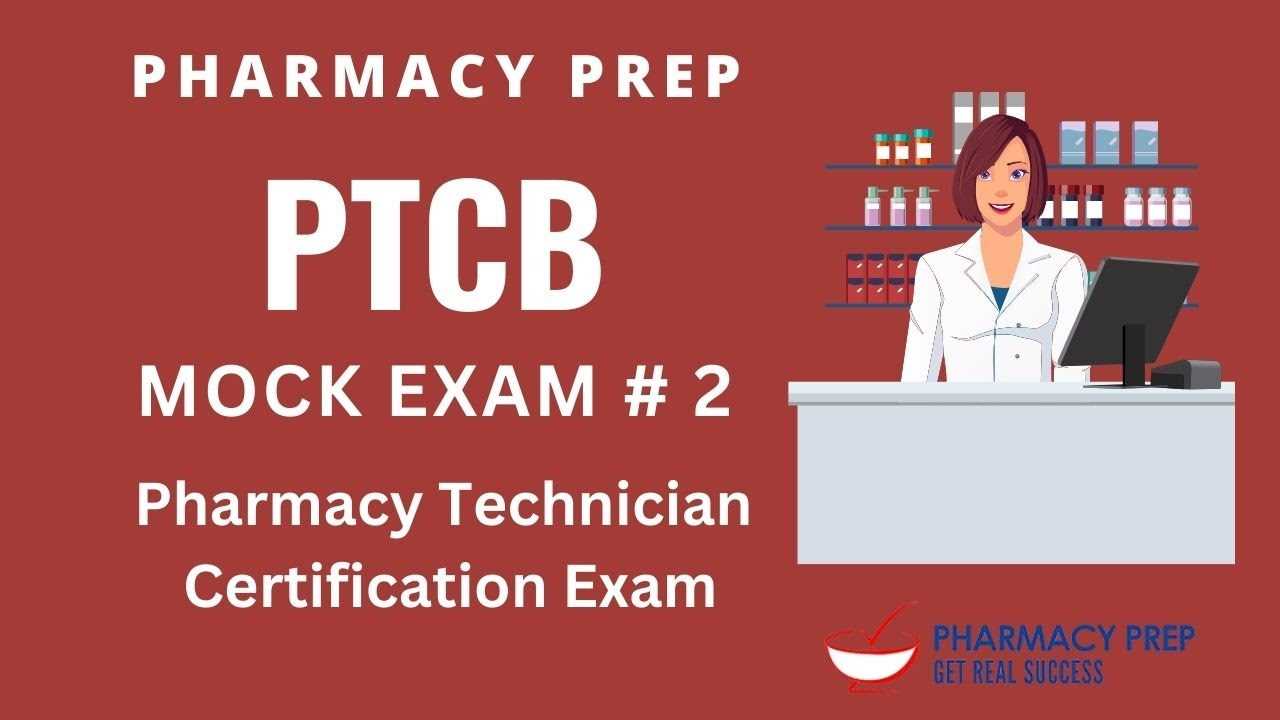
Certain topics are more frequently tested and carry greater importance. Prioritize these areas by dedicating extra time to mastering them. Use a mix of reading materials, interactive exercises, and question-based reviews to solidify your understanding.
| Key Strategies | Description |
|---|---|
| Time Management | Divide your preparation into smaller chunks and adhere to a consistent schedule. |
| Active Learning | Engage with the material through flashcards, mock scenarios, or group discussions. |
| Mock Exams | Simulate the testing environment to identify gaps and build confidence. |
Success lies in maintaining focus and consistency. By combining these strategies, you can approach the exam with greater confidence and readiness.
Essential Topics for PTCB Preparation
Success in any certification exam begins with a strong foundation in the most important subject areas. Understanding the core concepts and how they interconnect is key to navigating complex questions with confidence.
Mathematical skills are crucial, especially in calculating dosages, converting units, and understanding ratios. Accuracy in these areas ensures not only exam success but also proficiency in real-world scenarios.
Knowledge of medication classifications, uses, and side effects forms another critical component. Familiarity with these topics helps in recognizing patterns and making informed decisions during the assessment.
Legal and ethical guidelines are equally significant. A clear grasp of regulatory standards and professional responsibilities ensures compliance and accountability in all situations.
By focusing on these vital areas, candidates can strengthen their understanding and approach the exam with greater confidence and clarity.
Tips for Effective Pharmacy Test Study

To excel in a professional examination, it is essential to adopt a focused and dynamic study routine. By using a variety of methods and staying consistent, you can build a solid understanding of the required topics.
Prioritize High-Impact Subjects
Identify the areas that carry the most weight in the exam and focus on mastering them first. Allocate extra time to topics that are frequently assessed to ensure a comprehensive grasp of the material.
Adopt Active Study Techniques

Instead of merely reading, engage with the content through summarizing, creating mind maps, or teaching the material to someone else. These methods encourage deeper understanding and retention.
Regular self-assessment is crucial to measure progress. Use quizzes and mock scenarios to identify areas for improvement and refine your approach. A blend of focused study sessions and periodic reviews will help you stay prepared and confident.
Understanding the PTCB Certification Process
Achieving certification in the pharmacy field requires a clear understanding of the steps involved. The process is designed to ensure that candidates possess the knowledge and skills needed to excel in their role. Knowing what to expect can help you navigate each stage with confidence.
Eligibility Requirements
Before applying, it is important to meet specific eligibility criteria. The general requirements include:
- Completion of a pharmacy-related education program
- Experience working in a pharmacy setting
- Good standing with no felony convictions
Application and Scheduling
Once eligibility is confirmed, candidates can submit their application. The process typically includes:
- Filling out an online application
- Submitting necessary documentation
- Choosing an exam date and location
After scheduling, you will receive instructions on how to prepare and what to expect on the exam day. Following these steps ensures you are ready for the final stage–taking the examination.
Common Mistakes in PTCB Preparation
While preparing for a certification exam, it’s easy to fall into certain pitfalls that can hinder your progress. Being aware of these common mistakes can help you stay on track and optimize your study efforts.
Overloading on Information
Trying to cover too much material at once can be overwhelming. Instead of cramming, focus on mastering one topic at a time to ensure better retention.
- Study in manageable chunks
- Review key concepts regularly
- Avoid multitasking during study sessions
Neglecting Practice Simulations
Not simulating exam conditions can lead to unexpected surprises during the actual exam. It’s important to regularly practice with mock exams or similar exercises to build confidence and familiarity.
- Use mock exams to track progress
- Simulate the time pressure of the real exam
- Review mistakes to improve your understanding
By avoiding these common mistakes and implementing effective strategies, you can better prepare for the exam and increase your chances of success.
Time Management for Exam Success
Effective time management is crucial when preparing for any professional examination. Organizing your study time wisely allows you to cover all the necessary material without feeling overwhelmed. By prioritizing tasks and sticking to a schedule, you can ensure a balanced approach to your preparation.
Creating a Study Schedule
To manage your time effectively, create a study plan that breaks down your material into manageable sections. This approach ensures you cover everything without rushing. Key points to consider include:
- Set clear study goals for each session
- Allocate more time to difficult topics
- Include regular breaks to maintain focus
Sticking to a Routine
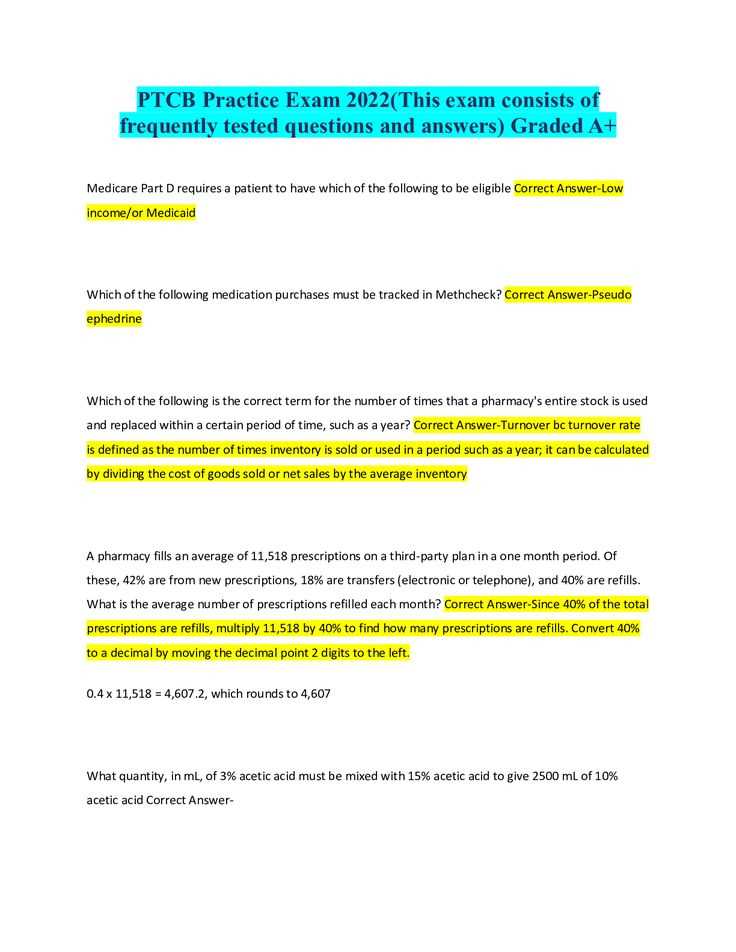
Consistency is key. Sticking to a regular routine allows you to stay on track and avoid cramming. Some tips to help you stay disciplined include:
- Set daily and weekly study goals
- Track progress to stay motivated
- Avoid distractions during study hours
By following a structured time management plan, you can reduce stress and maximize your chances of success on exam day.
Key Math Skills for Pharmacy Technicians
Math is an essential skill for pharmacy professionals, as it plays a crucial role in accurately measuring dosages, preparing prescriptions, and calculating medication concentrations. Having a solid understanding of fundamental math concepts can ensure efficiency and prevent errors in daily tasks.
Basic Arithmetic Skills
Pharmacy technicians must be proficient in basic arithmetic, including addition, subtraction, multiplication, and division. These skills are used to calculate dosages, ingredient amounts, and measurements for prescriptions.
| Operation | Example | Application in Pharmacy |
|---|---|---|
| Addition | 50 mg + 25 mg = 75 mg | Combining drug doses for patients |
| Subtraction | 100 mg – 30 mg = 70 mg | Adjusting dosages based on patient needs |
| Multiplication | 25 mg × 4 = 100 mg | Calculating total drug amount in a multi-dose prescription |
| Division | 200 mg ÷ 4 = 50 mg | Splitting doses for patients |
Ratios and Proportions
Understanding ratios and proportions is important for mixing medications, diluting solutions, or adjusting doses. Pharmacy technicians use these skills to ensure the correct concentration of a drug in a mixture or dosage form.
- Creating solutions with the correct concentration
- Determining the correct dosage based on body weight
- Adjusting medication strength based on prescribed amount
Mastering these math skills is vital for accuracy and safety in the pharmacy environment. Technicians who are confident in their calculations help prevent medication errors and improve patient outcomes.
Pharmacy Law and Ethics Overview

The field of pharmacy operates under strict legal and ethical guidelines that aim to ensure patient safety and the proper use of medication. Professionals in the pharmaceutical industry must be well-versed in the laws that regulate their practice, as well as the ethical principles that govern their decision-making and interactions with patients.
Legal Requirements for Pharmacy Practice
Pharmacy professionals must comply with a variety of laws designed to protect public health and ensure the safe distribution of medications. These laws cover everything from prescription filling to drug storage and handling. Knowledge of these regulations is crucial for avoiding legal issues and providing quality care.
- Controlled Substance Act: Governs the classification and distribution of narcotics and other controlled drugs.
- FDA Regulations: Ensure that medications are safe and effective for public use.
- State-Specific Laws: Pharmacy practice is also regulated by individual state laws, which may vary.
Ethical Principles in Pharmacy
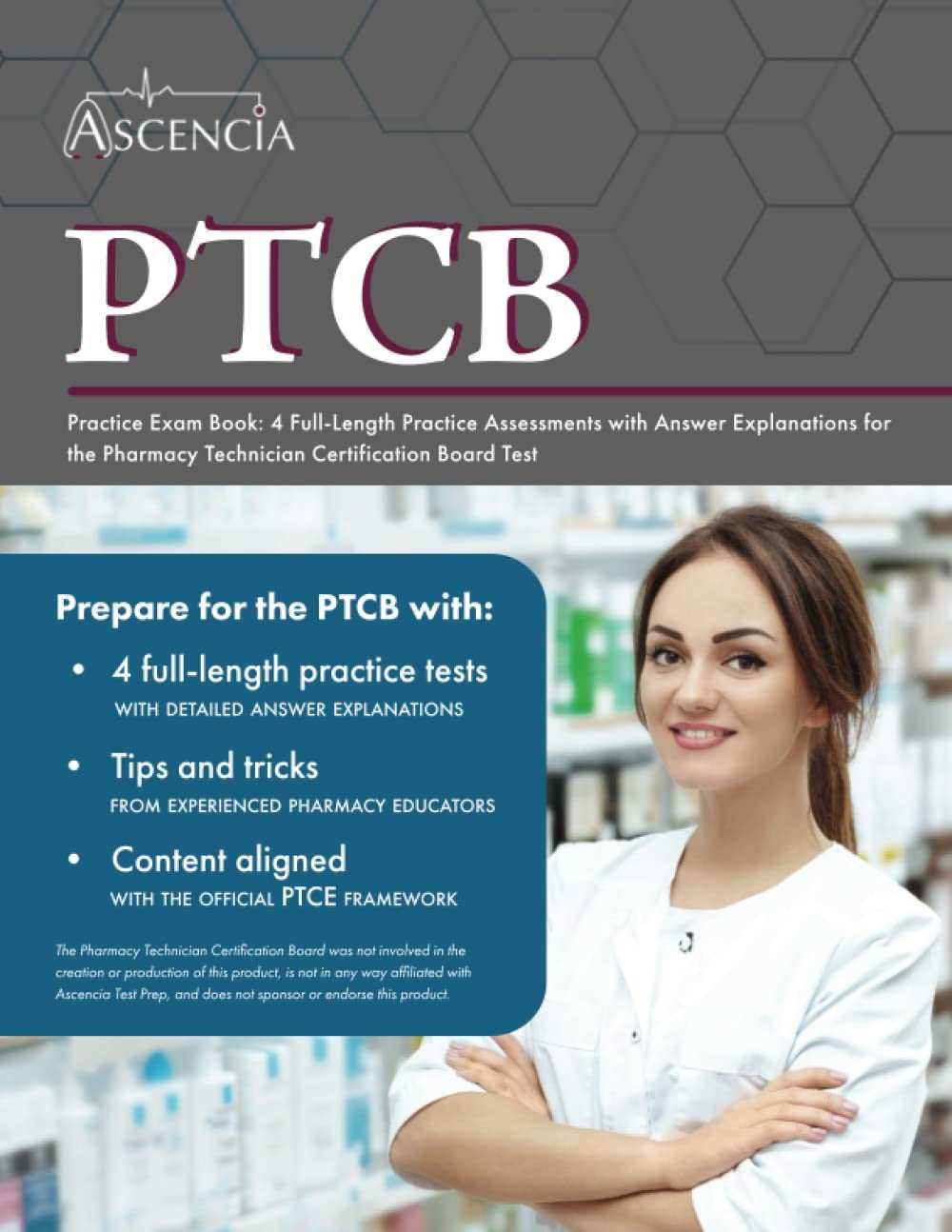
In addition to legal considerations, pharmacy professionals must adhere to ethical standards that prioritize patient well-being. Ethical practice involves making decisions that align with moral principles, such as honesty, integrity, confidentiality, and respect for patient autonomy.
- Patient Confidentiality: Ensuring that sensitive medical information remains private.
- Informed Consent: Providing patients with enough information to make informed decisions about their treatment.
- Professional Integrity: Maintaining honesty and transparency in all interactions with patients and colleagues.
Both legal knowledge and ethical conduct are essential for the effective practice of pharmacy. Staying informed about laws and adhering to ethical standards help foster trust between pharmacy professionals and the public, while ensuring the safe and effective delivery of healthcare services.
Top Resources for Certification Candidates
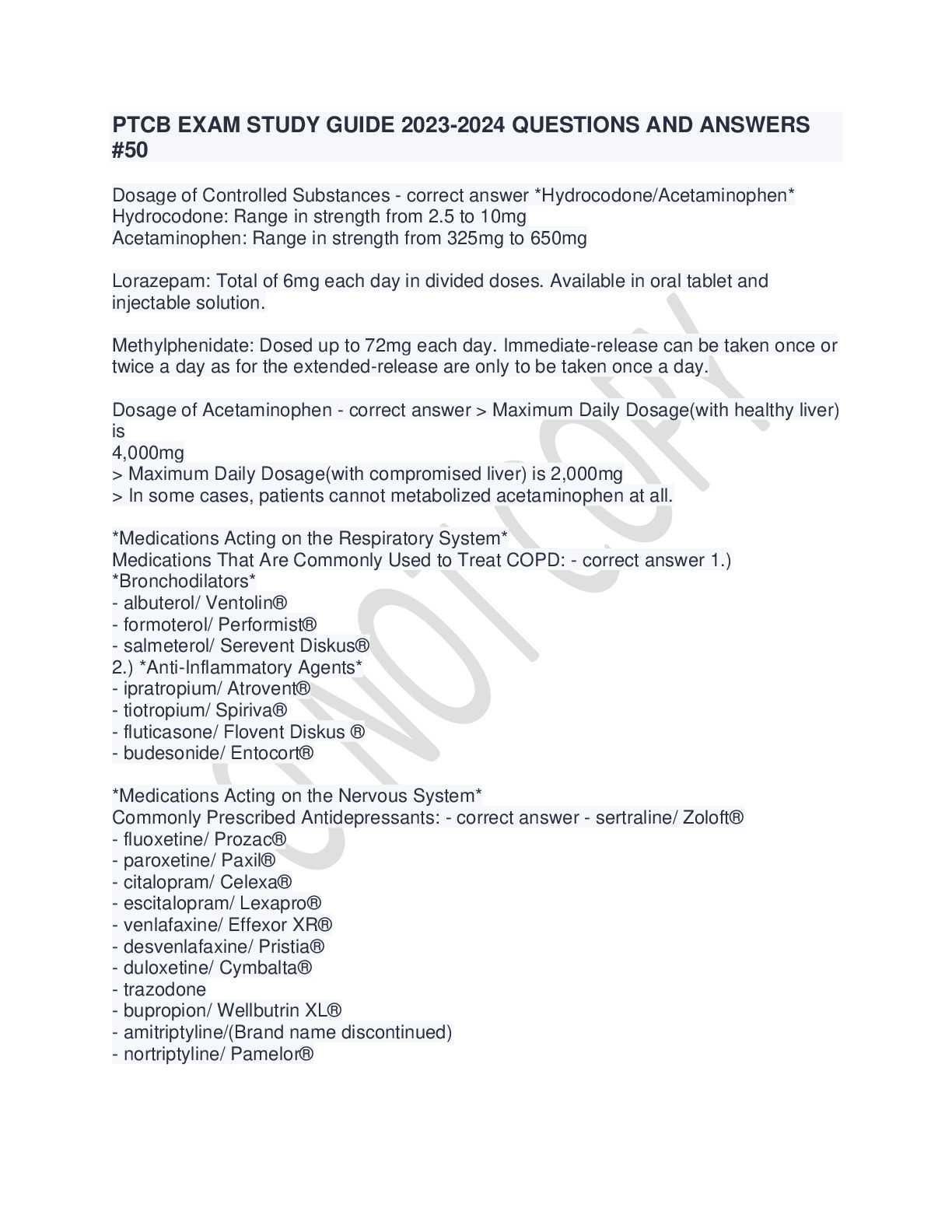
When preparing for a professional pharmacy credentialing process, having access to the right materials can significantly boost your chances of success. A combination of study guides, online platforms, and practice exercises can help candidates grasp essential concepts, reinforce learning, and develop effective strategies. Below are some of the top resources that can aid in preparation for the certification process.
Books and Study Guides
Books and detailed study guides are fundamental tools for acquiring a thorough understanding of the required topics. These materials typically present key concepts in an organized manner, offering detailed explanations, summaries, and real-life examples that are easy to follow.
- Comprehensive Study Texts: Look for books that cover all essential topics with clear explanations and examples.
- Interactive Workbooks: These materials often include exercises to reinforce learning and help retain important information.
- Flashcards: Ideal for quick memorization of key terms and definitions.
Online Platforms and Courses
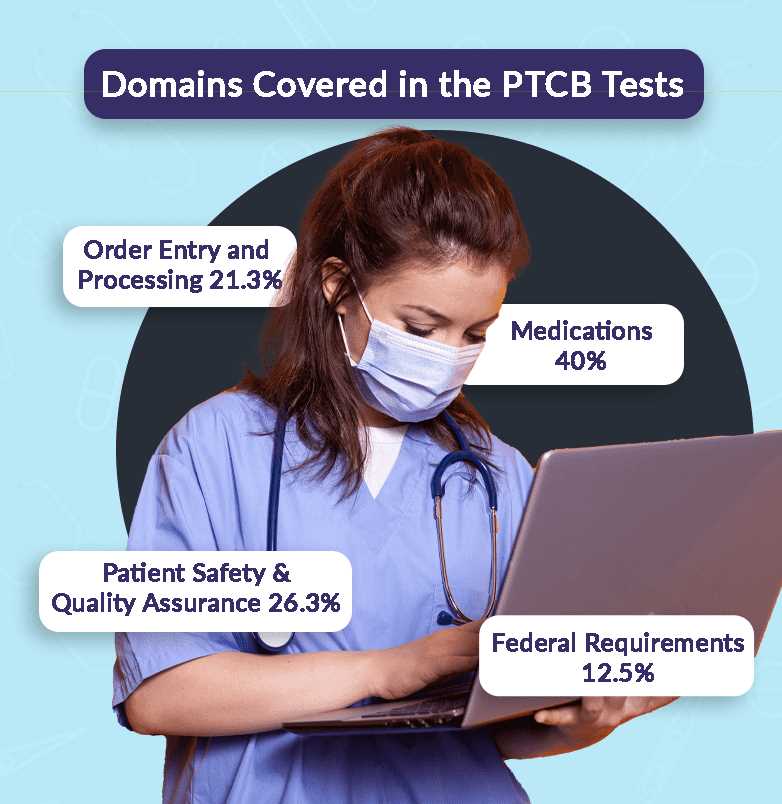
Online resources offer flexibility and convenience, allowing you to study at your own pace. Interactive courses, videos, and quizzes can provide a deeper understanding of critical topics and help you assess your progress regularly.
- Online Classes: Enroll in structured courses that cover all areas of the exam content, presented by industry experts.
- Webinars and Virtual Sessions: Join live sessions that allow interaction with instructors and peers, offering the opportunity for clarification and discussion.
- Mobile Learning Apps: Take advantage of mobile apps that enable studying anytime, anywhere, with short lessons and quizzes.
Practice Simulations
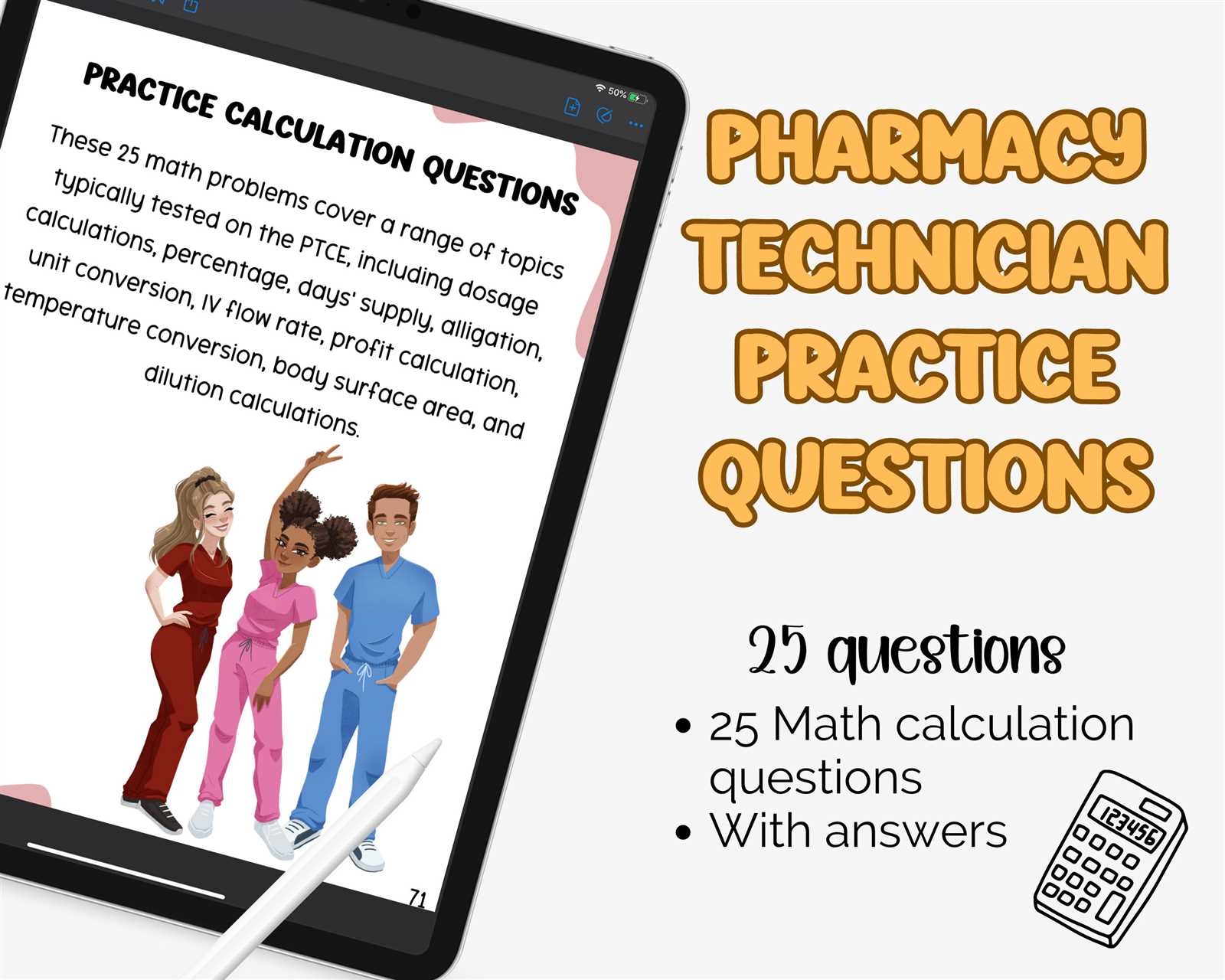
Simulated exams are an excellent way to familiarize yourself with the exam format, assess your time management, and refine your test-taking strategies. These simulations can also highlight areas that need further focus, helping you direct your efforts more effectively.
- Question Banks: Access to a wide range of questions can help you familiarize yourself with the types of questions you may encounter.
- Mock Exams: Full-length practice exams provide valuable experience under timed conditions, helping reduce anxiety and improve performance.
By leveraging these valuable resources, candidates can build their knowledge base, sharpen their skills, and enter the certification process with confidence.
Memorization Techniques for Certification Topics
Mastering a large amount of information is essential for success in pharmacy credentialing processes. Effective memorization techniques can help candidates retain critical information, enhance recall under pressure, and boost overall performance. Below are some proven methods to aid in memorizing complex topics and concepts.
Chunking Information
Chunking involves breaking down large pieces of information into smaller, more manageable units. This method helps in organizing related concepts and makes it easier to recall them later. Grouping similar items together aids in better retention and reduces cognitive overload.
- Group related terms or categories (e.g., medications, regulations, dosages) into logical sets.
- Use mnemonic devices or acronyms to remember these chunks more effectively.
Visualization and Memory Palaces
Visualization is a powerful technique where you create vivid mental images to represent information. Associating information with a physical location, also known as the “memory palace” technique, helps in embedding details deeply into memory.
- Imagine placing key concepts in specific locations within a familiar setting, such as your home or office.
- Visualize objects or images that represent the information to make it more memorable.
Active Recall and Spaced Repetition
Active recall involves testing yourself regularly on the material, which strengthens memory retention. Spaced repetition ensures that you review information at increasing intervals, optimizing long-term retention.
- Quiz yourself on key concepts to reinforce memory.
- Use spaced repetition software or flashcards to review material periodically.
By incorporating these memorization techniques, candidates can improve their ability to retain important topics and perform with confidence in the credentialing process.
Simulated Exams for Real Exam Experience
Simulating the actual examination environment is a crucial part of preparation. By engaging in realistic mock scenarios, candidates can develop a better understanding of the format, manage time effectively, and gain confidence in their ability to perform under pressure. Such exercises not only reinforce knowledge but also improve test-taking strategies.
Replicating the Real Exam Environment
One of the most effective ways to prepare for the examination is by replicating the actual testing conditions as closely as possible. This means setting up an environment that mirrors the time constraints, question styles, and exam length. By practicing in this setting, candidates become familiar with the pressure they may face, allowing them to perform with more ease and precision during the real exam.
- Time yourself according to the exam duration.
- Recreate a quiet, distraction-free environment similar to the testing site.
Evaluating Performance and Identifying Weak Areas
After completing a simulated session, it is essential to evaluate your performance. This process helps identify any weak areas that may need further study and improvement. Reviewing mistakes and understanding the rationale behind correct answers is a key step in reinforcing knowledge.
- Review incorrect responses and analyze why they were wrong.
- Focus additional study time on areas where errors occurred.
By consistently practicing in simulated environments, candidates can increase their readiness and improve their chances of success in the actual examination.
How to Interpret Practice Results
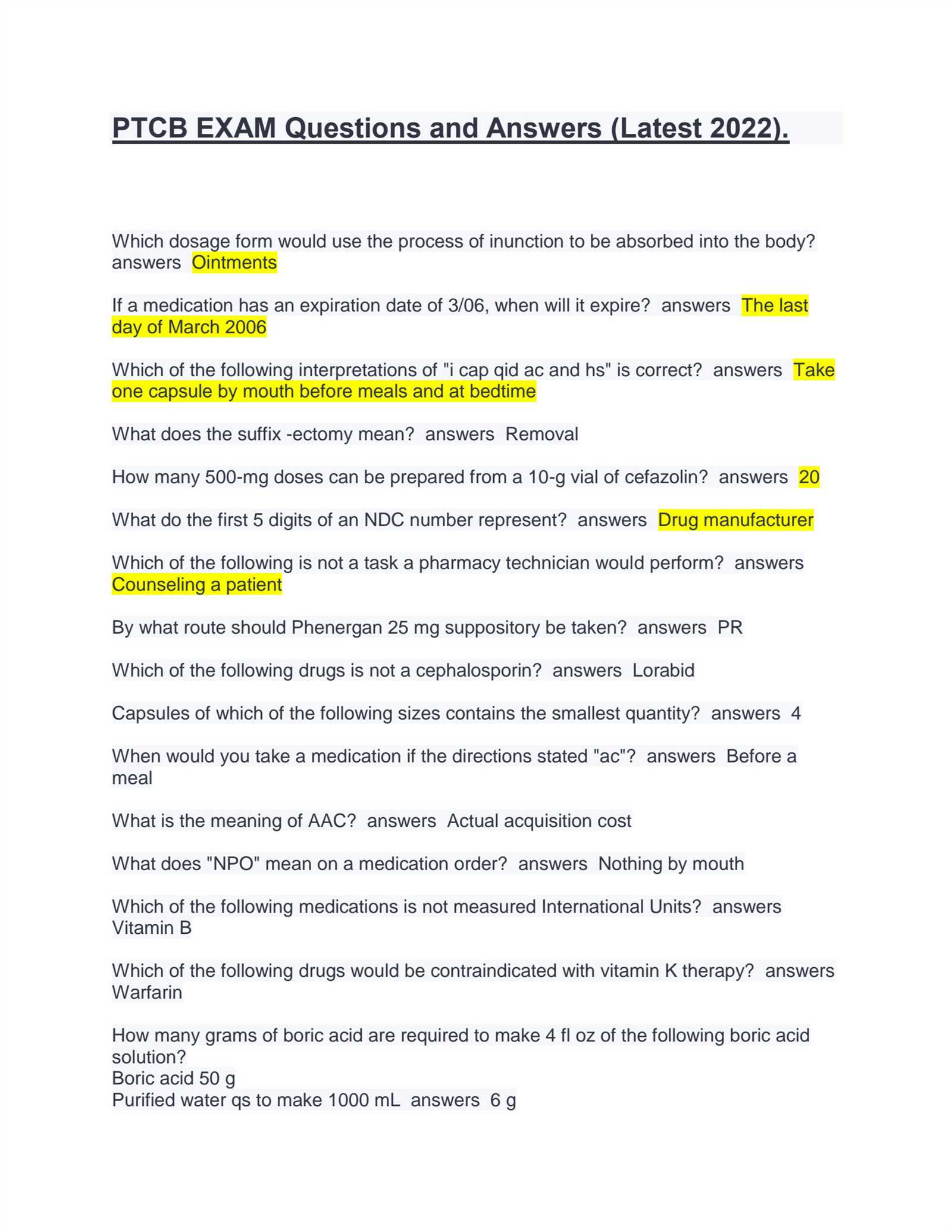
Analyzing your performance after completing a mock assessment is a key step in your preparation. It provides insight into areas of strength and identifies aspects that need further attention. Understanding these results allows you to adjust your study plan accordingly, targeting weaknesses and reinforcing areas where you are already proficient.
Understanding Your Scores
Your score provides an initial indicator of how well you are grasping the material. However, it is essential to interpret the score in the context of individual sections or question types. A low score in one area may indicate a lack of familiarity with the subject, while a high score suggests mastery.
- High score: Reinforce your knowledge to ensure it remains sharp.
- Low score: Review and focus on the material related to the weak area.
Identifying Patterns in Mistakes
Look for recurring patterns in the mistakes you make. Are you consistently struggling with specific concepts or types of questions? Recognizing these patterns allows you to focus your efforts on targeted study, ensuring more efficient use of your time.
- Check if the mistakes are related to calculations, terminology, or application of knowledge.
- Identify if errors are primarily made under time pressure or when dealing with complex questions.
Using Results to Adjust Your Strategy
Based on your results, adapt your approach to studying. Focus more on the areas that are challenging, while continuing to review what you already understand. This balanced approach will help you achieve better outcomes over time.
- Allocate extra time to difficult sections while maintaining regular revision of familiar topics.
- Use targeted resources such as study guides or specific exercises for weak areas.
By interpreting your performance thoroughly and adjusting your study plan accordingly, you can increase your chances of success when it matters most.
Frequently Asked Questions About Certification
This section addresses common inquiries related to the certification process for pharmacy professionals. Understanding the key aspects of the journey to certification is essential for those preparing to advance in their careers. Below are the most frequently asked questions that can help clarify your path to success.
General Information
Many individuals have questions regarding the overall certification process, the requirements, and how to best prepare. The following table answers some of the most common queries:
| Question | Answer |
|---|---|
| What are the eligibility requirements? | To be eligible, candidates typically need to meet specific criteria such as completing a pharmacy technician training program or having a certain amount of work experience. |
| How long is the certification valid? | Certification is usually valid for a period of two years, after which it must be renewed through continuing education or re-certification exams. |
| What topics are covered in the certification process? | The exam assesses knowledge in areas such as medication safety, laws, regulations, and pharmacy operations. |
Preparation Tips
Effective preparation is key to success. Many candidates wonder how to optimize their study time and which resources to use. The answers to the following questions can help you approach preparation efficiently:
| Question | Answer |
|---|---|
| How can I best prepare for the certification? | It is recommended to study using a variety of resources including textbooks, online materials, and review guides. Practice questions can also help reinforce knowledge. |
| Is there a recommended study timeline? | Many candidates prepare over a period of 2-3 months, but the timeline may vary based on individual needs and study habits. |
| What should I do if I don’t pass? | If you do not pass, review your performance, identify weak areas, and create a new study plan. You can retake the exam after a set waiting period. |
Strategies to Improve Test Scores

Achieving high marks in any assessment requires not just knowledge but also effective strategies. By incorporating focused approaches to studying and exam-taking, individuals can maximize their performance and boost their confidence. The following techniques can help improve understanding and enhance overall results.
1. Prioritize Time Management
Effective time management is crucial when preparing for any examination. Allocate specific times each day for studying and stick to a consistent schedule. Make sure to break down complex topics into manageable sections, allowing time to review each thoroughly.
2. Practice Under Real Conditions
Simulating exam conditions can be highly beneficial. Try completing sample assessments within a set time limit to replicate the pressure of the actual exam. This can help improve focus, timing, and reduce test anxiety.
3. Review Mistakes Thoroughly
Reviewing errors after completing practice material is one of the most effective ways to improve. Identify areas of weakness, and focus your attention on these topics during subsequent study sessions.
4. Use Active Learning Techniques
Engage with the material actively instead of passively reading. Techniques such as summarizing key points, teaching the content to someone else, or creating flashcards for quick recall can enhance retention and understanding.
5. Stay Organized
Keep your study materials organized by subject and topic. Use charts, diagrams, and outlines to structure your review sessions and ensure you cover all the necessary content efficiently.
6. Take Care of Your Well-Being
Your physical and mental health play an important role in exam performance. Ensure you get enough sleep, eat properly, and take breaks during study sessions. A well-rested mind is more capable of retaining information and performing well under pressure.
Breaking Down Exam Sections
Understanding the structure of an examination is key to efficient preparation. Each section of the assessment evaluates different areas of knowledge and skills. Breaking down the sections allows you to tailor your study approach, ensuring that you focus on areas where improvement is needed. Below is a breakdown of the typical sections you will encounter and what each entails.
1. Medication Safety
This section focuses on identifying potential safety hazards in medication management. It tests knowledge of proper drug storage, handling, labeling, and the prevention of medication errors. Mastery of safety protocols, such as proper dosage calculations and recognizing adverse drug interactions, is essential.
2. Pharmacology
Pharmacology involves understanding the different types of medications, their uses, side effects, and mechanisms of action. This section evaluates your ability to match drugs with their therapeutic uses, as well as the correct administration methods for various pharmaceutical forms.
3. Pharmacy Law and Regulations
This section assesses your knowledge of the legal and ethical guidelines that govern pharmacy practice. It covers topics such as federal regulations, state laws, and professional ethics, ensuring you understand how to comply with these rules in real-world scenarios.
4. Medication Order Review
Here, you will need to demonstrate your ability to assess and verify medication orders accurately. This includes interpreting prescriptions, checking for potential errors, and ensuring that all details comply with pharmacy regulations. Strong attention to detail and the ability to identify inconsistencies are crucial in this section.
5. Drug Information and Patient Safety
This section evaluates your ability to provide accurate drug information and offer advice on patient safety. This includes counseling on drug interactions, side effects, and proper usage instructions. You will also be expected to demonstrate an understanding of patient history and how it affects medication selection.
6. Order Entry and Processing
This section tests your skills in processing medication orders efficiently and accurately. You will need to show proficiency in entering orders, checking for potential issues, and ensuring that prescriptions are filled according to proper protocols. It requires a strong understanding of inventory management and system software used in the pharmacy setting.
Best Study Apps for Pharmacy Technicians
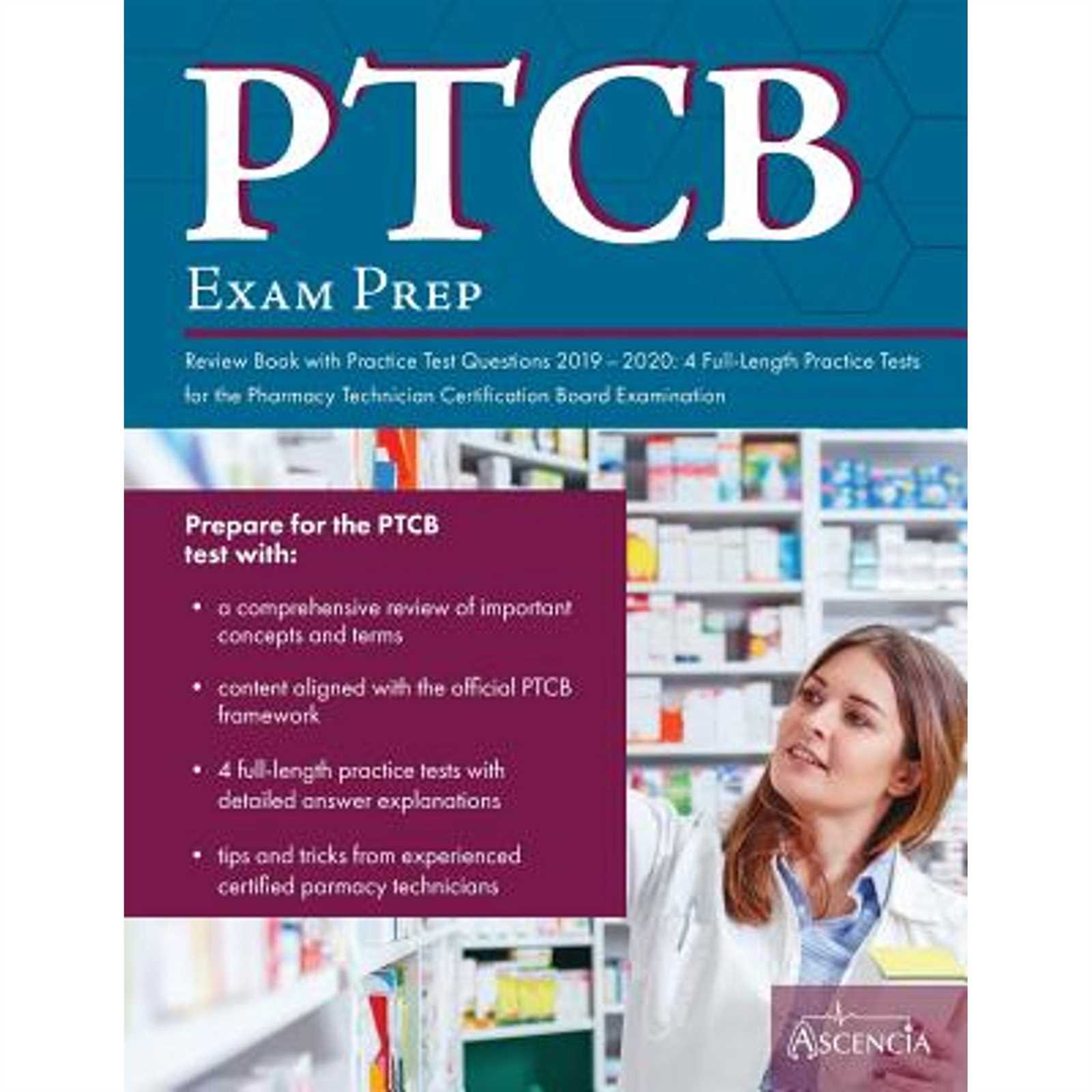
In today’s digital age, there are numerous applications designed to support pharmacy technicians in their preparation. These apps provide a flexible, on-the-go way to reinforce critical knowledge, test your skills, and stay updated on important concepts. Here are some of the top study apps that can enhance learning and help with mastering essential topics in the field.
1. Medscape
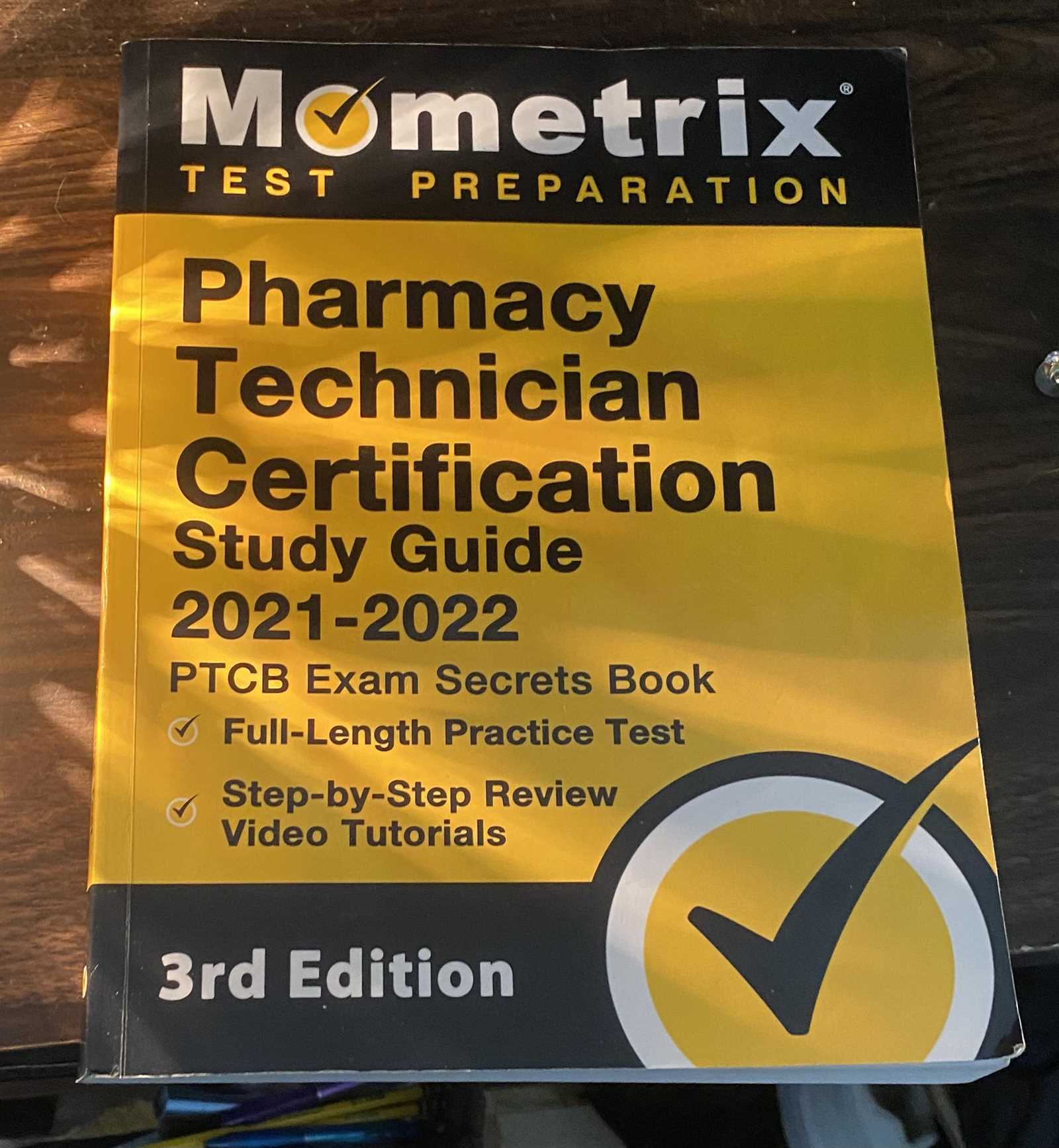
Medscape is a popular app that provides comprehensive drug information, including side effects, interactions, and contraindications. Pharmacy technicians can use it to quickly reference medications, access detailed articles on pharmacology, and stay informed on the latest medical news and trends.
2. Quizlet
Quizlet is a versatile app that allows users to create their own flashcards or use pre-made sets to study various pharmacy topics. Its interactive format makes it easy to memorize drug names, dosages, and key concepts. It also offers quizzes and practice exams to test your knowledge.
3. Pharmacy Technician Certification Exam (PTCE) Prep
This app is specifically tailored to pharmacy technicians aiming for certification. It includes a variety of practice materials, including mock questions and detailed explanations of each topic. With focused study areas, users can efficiently target their weak spots and track progress over time.
4. Drug Information Portal
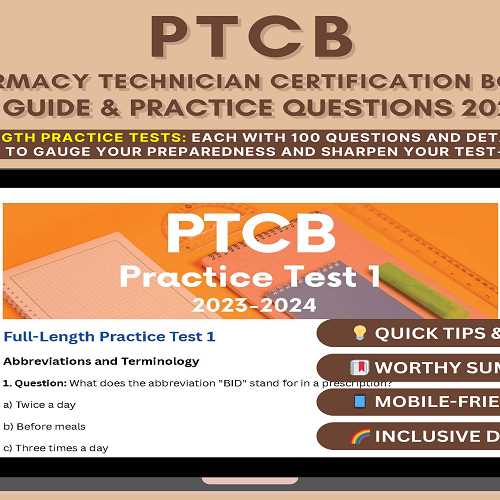
Developed by the National Library of Medicine, this app provides access to a wealth of drug-related information, including safety data and guidelines. It’s a valuable resource for pharmacy technicians needing to quickly look up critical drug facts or clinical guidelines.
5. PocketPharmacist
PocketPharmacist is a compact reference tool that covers a wide range of medications, including common over-the-counter and prescription drugs. It provides clear and concise information about drug interactions, side effects, and dosing recommendations, making it an essential app for daily use in the pharmacy.
| App Name | Key Features | Best For |
|---|
